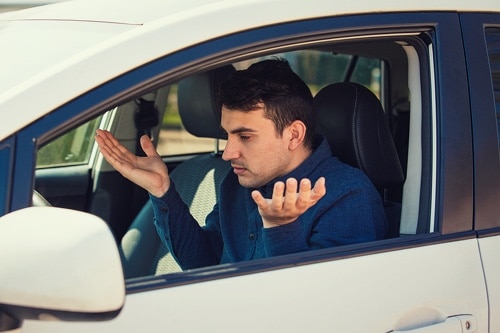Your vehicle has its own sound based on how it was engineered. Under normal circumstances, that audio tells you that everything is operating just as it should. When things go wrong, unusual car noises will often serve as an early warning. If your automobile is emitting some strange disturbances, here are a few reasons why.
Scraping or Grinding When Braking

Caused by metal pressing against metal, it’s a telltale sign that your brake pads have worn. Replace your brake pads at once to ensure your safety and prevent further damage to your rotors.
Squealing During Acceleration
This is most often caused by a worn or slipping fan belt. Ignore this squealing, and you could wind up sitting alongside the road. Instead, stop and tighten the fan belt if needed, or bring your vehicle to us for a replacement.
Clunking, Knocking, or Tapping Under the Hood
If your engine has quite a few miles on it, it may not run as quietly as it once did. However, it should not produce any loud clunking, knocking, or tapping noises. Sounds such as these are among the car noises you should never ignore as they indicate a problem with your rods, pistons, or valves. Significant engine repairs could ensue unless you bring your vehicle to a mechanic ASAP.
Snapping or Popping when Turning
Your CV axle consists of an inner and outer joint on either side. These joints allow power to be transferred to the wheels as your car moves along. When the joints become worn, they may make a popping or snapping noise when turning. If only one joint is worn, you’ll hear the sound only when turning a single direction (either left or right).
If the joint gives out while driving, your automobile can stop immediately. It is never safe to drive with a worn CV joint. Please have your vehicle towed sin so that our mechanic can have a look at it.
Whining or Howling Noises
Your wheels contain ball bearings that allow them to rotate smoothly. If your bearings are worn, you may notice whining or howling noises coming from your wheels. In some instances, these sounds are noticed only while turning, but other times they can be continuous. Either way, problems with your ball bearings should not be ignored.
As with worn CV joints, a serious accident could occur if your ball bearings were to give out while driving. At the first sign of trouble, bring your car in for auto repair.
Rattling Noises
Rattling noises typically indicate that something has come loose or that a foreign object has become trapped inside a component. If you’re having trouble identifying the source, our mechanic would be happy to assist you.
Regular maintenance is the best way to avoid these and other car noises. In addition, many problems such as worn ball bearings or brake pads are first discovered during a routine maintenance appointment. If you’re experiencing unusual sounds or would just like to avoid hearing them in the future, please contact us.